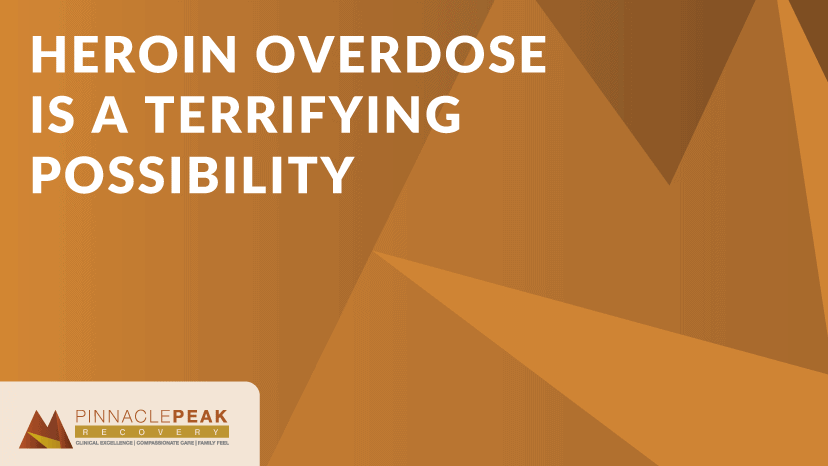I am the mother of an adult son that overdosed on heroin. I can tell you with absolute certainty there is nothing worse than waking up to a phone call from a hospital staff member sharing that your beloved son is at the hospital and needs your help.
He needs your help right now. Is this a nightmare? No, this is real life. This is really happening.
Your head is spinning, but you have to get your bearings and go. You find yourself driving as fast as you can down the highway to the nearest emergency room.
Hoping, wishing, and willing with all your being and all your might that he’s going to make it. Please make it.
Crying, screaming, and pounding your hand against the dashboard. All in an effort to somehow will this life to be different for him. Better for him. For there to be life left for him to live.
Feelings of sadness, rage, and fear bubble to the surface. You imagine him lying on a hospital bed alone and scared. This isn’t like the school days anymore where you could meet with his teacher to talk about his grades or problem-solve for his issues with bullies.
His problems don’t feel as solvable these days. There’s no colorful bandage that can heal the visible and invisible wounds he has now. There isn’t a quick or simple fix for this.
To keep my vision focused and not blurred by my tears and self-blame, I imagine him well enough to make it another day and then another and another. To make it to a new life where heroin becomes a distant, far-off memory in his rearview mirror.
Thankfully, my son was one of the fortunate ones that made it after overdosing. He is, of course, physically and emotionally scarred from the event, but he is alive. He gets another chance to make a new life.
What Is Heroin? How Is It Used?
According to the National Institute on Drug Abuse, heroin is a highly addictive, illegal drug that is derived from the seed pod of poppy plants. Heroin is white, brown, or black in color. Heroin may be “cut” (diluted) with sugars, powdered milk, starch, or quinine (medication used to treat malaria). In its purest form, heroin is a white powder. Heroin has a bitter taste.
Heroin can be snorted, smoked, or injected. The fact that heroin can be snorted or smoked may be attractive to those using or wanting to use heroin because there is a stigma and shame associated with injection drug use.
Signs & Symptoms of Heroin/Opioid Overdose
If you or your loved one is having a heroin or other drug overdose, call 911 immediately to get help.
According to the Substance Abuse and Mental Health Services Administration (SAMHSA), heroin or opioid overdose signs and symptoms include the following:
- Their face is extremely pale and/or feels clammy to the touch
- Their body goes limp
- Their fingernails or lips have a purple or blue color
- They start vomiting or making gurgling noises
- They cannot be awakened or are unable to speak
- Their breathing or heartbeat slows or stops
Treating Heroin/Opioid Overdose
SAMHSA advises that those trying to help someone that has overdosed on heroin or other opioid drugs take the following steps:
- Call 911
- If the person has stopped breathing or if breathing is very weak, begin CPR (best performed by someone who has training)
- If available, treat the person with naloxone (Narcan) to reverse opioid overdose
How Common Is Heroin Overdose in Arizona?
As reported by the Centers for Disease Control and Prevention (CDC), in Arizona, the number of overdose deaths involving heroin decreased from 2018 to 2019. Heroin statistics in Arizona show that there were 352 overdose deaths involving heroin reported in 2018. In 2019, there were 271 overdose deaths involving heroin reported in Arizona. The percentage change from 2018 to 2019 was a decrease of 25%.
It is wonderful that drug overdose deaths involving heroin were trending downward as of 2019. However, even one death involving heroin is one too many. Let’s explore heroin treatment options next.
Heroin Treatment at Pinnacle Peak Recovery
After his overdose, my son and I have been considering heroin treatment options for him here in Arizona. I have a mom friend that suggested Pinnacle Peak Recovery as a local addiction treatment option.
This friend shared enjoying the person-centered treatment approach used at Pinnacle Peak Recovery. My friend also appreciated that they emphasized providing dual diagnosis treatment. This means they focus treatment on both the addiction and mental health issues of a person since they are often so intertwined.
This friend shared that her daughter felt seen, heard, and understood while at Pinnacle Peak Recovery. Her daughter worked hard in the treatment programs they offered and has begun to piece together a new life in recovery.
At Pinnacle Peak Recovery, our viewpoint is that people struggle with substance use problems but are not the problems themselves. People have the ability to gain freedom in recovery from their substance use issues with the aid of our high-quality, caring treatment team.
There is heroin addiction treatment available at Pinnacle Peak Recovery. To stabilize those having withdrawal symptoms as a result of heroin use, we offer heroin detox. While in detox, you or your loved one that struggles with heroin use will be assessed by medical professionals and prescribed medications as needed to aid in tapering off of heroin and other drugs. Detox typically lasts five to seven days.
Next, we offer heroin rehab. The rehab length of stay can vary based on drug history and treatment progress. Additionally, we offer outpatient treatment for ongoing addiction and mental health care needs. Our goal is to offer comprehensive, evidence-based treatment to you or your loved one from the beginning to the end of your time spent in treatment.
Connect with Pinnacle Peak Recovery Today
This story of a mom aiding her son during and after a heroin overdose is unfortunately not an isolated event. There are people out there that are struggling and need help to prevent the next overdose and gain skills, knowledge, and support to lead a healthier lifestyle. These people may be your most cherished loved one, a friend, a neighbor, maybe even you.
At Pinnacle Peak Recovery, we take caring for you or your lived one seriously. We understand that gaining quality addiction treatment could be the difference between life and dealth, especially for those with a history of drug overdose. Don’t wait. you or your lived one needs help now. You are worthly of high-quality care. Call us today at (866) 377-4761
FAQs
Can you overdose on Narcan?
According to the National Institute on Drug Abuse, side effects from using naloxone or brand name Narcan are rare. People may have an allergic reaction to naloxone. Naloxone is considered to be a safe medicine given its ability to reverse overdose in individuals with opioids in their system. It is important to note naloxone is not effective in reversing overdoses for other drugs such as cocaine or methamphetamine.
How long does Narcan stay in your system?
According to “Naloxone dosage for opioid reversal: current evidence and clinical implications,” by authors Rachael Rzasa Lynn and JL Galinkin, the serum half-life of naloxone is about 60 minutes, though individual variations range from 30 to 90 minutes. The half-life of a drug refers to the time it takes for the substance of the drug to reduce by half in the body. The National Center for Biotechnology Information says it takes four to five half-lives for a drug to be eliminated, so for Narcan, that would be about four to five hours.


